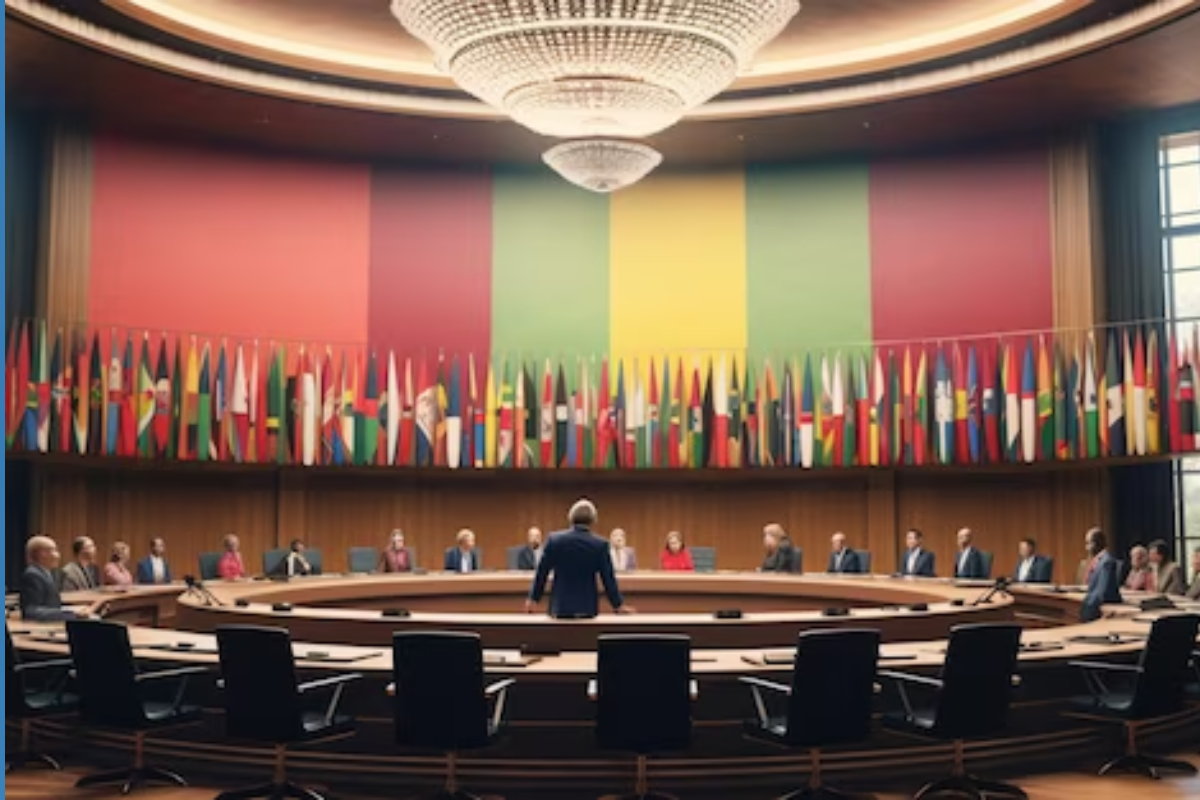Cuba’s New Parliament Will Face a Familiar Economic Hangover
Economic Hangover :- Industrial engineer Jose Guerra Ferrer, who is located in Havana, believes that “the economic situation in Cuba is awful.” On the upcoming national assembly elections, he said, “I hope the new parliament can resolve it.
In recent years, Cuba’s parliament has gradually changed policy in an effort to reduce economic restrictions, and Guerra Ferrer hopes that will continue with the country’s approaching elections.
The nation’s highest political body is put together by committees made up of student organizations and labor unions. They can ratify their vote for president once candidates, the majority of whom are PCC, or the Communist Party of Cuba, are nominated.
That is undoubtedly the current leader, Manuel Diaz-Canel, who succeeded Raul Castro in 2018. Diaz-Canel, a PCC veteran, accepted a new constitution the year after, in 2019. It was intended to modernise Cuba’s entrenched state machinery amid escalating political unrest.
Recent elections in Cuba have become characterized by voter absence. For example, voter turnout for the municipal elections in November 2022 dropped below 70% for the first time, demonstrating a lack of interest in a political system that depends on popular support.
Decades of sanctions
Fugencio Batista, who had received US support, was overthrown in 1959, and Fidel Castro and his successors took over as the country’s one-party government. Since then, the PCC has exceeded expectations by enduring years of economic isolation and the collapse of a crucial partner in the Soviet Union.
A contentious trade embargo, among other limitations, has been the cornerstone of US foreign policy towards Cuba since the early 1960s. The Obama administration then started to normalize relations with Cuba in 2015, including a move away from sanctions.
Donald Trump, on the other hand, added new policies while also reintroducing previous ones. He restricted the amount of money that Cuban Americans could send to their relatives and banned US tourism (some remittance restrictions have been eased under President Joe Biden).
Guillaume Long, a former foreign minister for Ecuador, asserts that the reality of sanctions is that their effects are multifaceted. Governments are unable to adhere to established procedures, which reduces their ability to create new states.
There is no denying that US sanctions have hurt Cuba’s economy, he insisted. After the Soviet Union fell apart in 1991, the nation also underwent a difficult adjustment. Up until that point, the USSR provided 70% of all imports, including food and medicine, and 90% of Cuba’s petroleum needs, largely at subsidized prices.
Cuba’s trade with the former Soviet Union fell by 89 percent between 1989 and 1994. Domestic production was constrained while the government’s grip on the economy was strengthened. Privileged access to credit and foreign currency has allowed large public enterprises to survive.
Cuba’s economy is still largely dependent on raw materials today. Around 30% of foreign exchange revenues come from sugar and tobacco. Moreover, Cuba exports medical professionals to Brazil and Venezuela in the form of doctors and nurses. Meanwhile, one significant source of income is tourism.
The PCC has established respectable healthcare and education systems in other places. In addition to having a life expectancy that is higher than that of the United States, Cuba is the smallest nation in the world to have successfully created a COVID-19 vaccine.
Recent setbacks
Cuba suffered a fatal blow as a result of COVID-19 because of the overriding importance of tourism to its economy. According to Bloomberg News, traveler arrivals drastically decreased during the epidemic, going from four million in 2019 to just 356,000 in 2021. Foreign exchange inflows sharply decreased.
In January 2021, the PCC was compelled to combine Cuba’s dual exchange rate system in order to deal with declining foreign reserves. The Cuban peso (CUP), which had long been pegged to the US dollar, had to be devalued to the then-unofficial rate of 24 pesos per US dollar.
Nevertheless, Alberto Gabrielle, a senior researcher at the political think tank Sbilanciamoci in Rome, claimed that the new rate was “overvalued.”
He continued, “The devaluation failed to reach an equilibrium in Cuba’s import-export balance, leading to a shortage of products and pushing up inflation.”
Cuba’s stated consumer price index increased by 70% in 2021, while being challenging to quantify. Unofficial calculations indicated that inflation rose by 100–500% within the same time span. Gabrielle reported that the length of the lines at pharmacies and grocery stores had increased.
The decline in purchasing power coincided with an increase in coronavirus cases at the beginning of 2021, which sparked a wave of social unrest. Cuba experienced the strongest anti-government protests in years in July of that year.
Thousands of demonstrators protested in Cuba’s streets despite the country’s ban on open dissent, raising issues with the country’s food security and how the government was handling the pandemic. Although the protests were promptly put down, they were successful in upsetting the government.
Gabrielle remarked that “the government was scared, especially when inflation persisted into 2022.” Authorities implemented a second exchange rate for private transactions in August 2022 at CUP120:$1 to buck these tendencies. This reduced the pressure on import prices and decreased the need for dollars.
Gradual opening up
The PCC already decided to increase private sector activity before the events of last year in an effort to increase output and ease the lack of commodities. For 2,000 of the listed professions (up from 127 before), the government decided to award private company registration in February 2021, facilitating partnerships with foreign investors and reducing governmental control over commercial activity.
The administration is hopeful that piecemeal reforms will spur growth even if a new law granting equal commercial rights for private companies and state firms has not yet been agreed upon.
According to Guillaume Long, “Heterodox policies will be retained, but a progressive openness will undoubtedly be the new parliament’s course of action.”
Many Cubans are anticipated to attempt to depart the country up to that point. In the fiscal year 2022, which concluded on September 30, a record 220,000 Cubans were apprehended at the US-Mexico border. US Customs and Border Protection recorded over 50,000 interactions with Cuban migrants between December 2022 and January 2023.
The engineer Guerra Ferrer’s experience is not unusual. “I have many friends who have emigrated,” he said. My son might retire to support my wife and Myself as well.
Reference :
- https://www.iri.org/news/a-new-economic-policy-in-cuba-is-hurting-private-workers/
- https://www.ctvnews.ca/world/cubans-flee-island-s-economic-woes-by-air-land-and-sea-1.6047100









